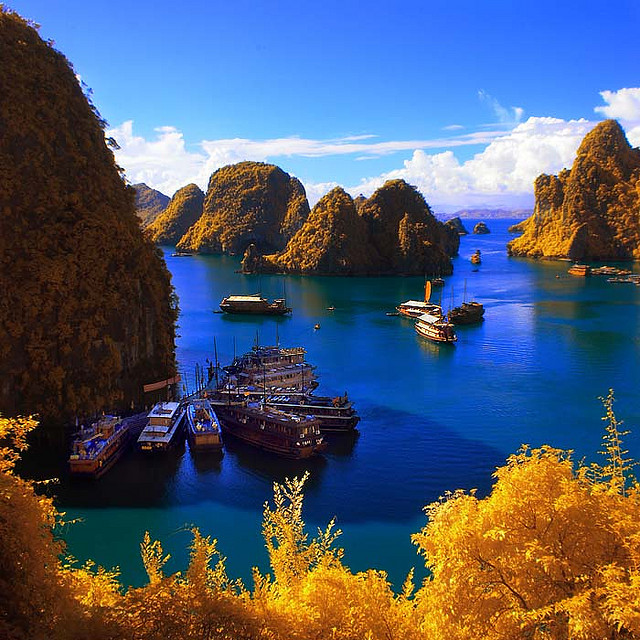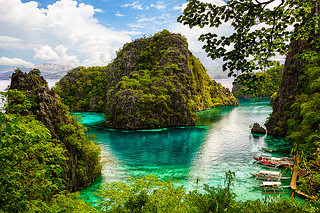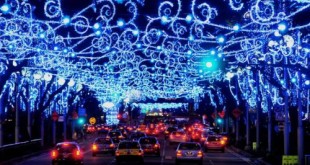India’s cultural diversity is staggering, and this is best reflected in the many public holidays the state and the nation as a whole celebrate. Given the deep devotion of Indians to their varied faiths, the majority of the festivals are religious in nature.
India public holidays 2014 are categorized into gazetted holidays – public holidays apply regardless of faith or region – and restricted holidays that only apply to a certain region, like Tamil Nadu, or religion, like Jainism. No other country can boast of so many holidays running the gamut of Sikhs celebrating their Guru’s birthday to Hindus commemorating Durga’s victory over demons. (Note that Islamic holidays are to be confirmed upon the local sighting of the new moon.)
Milad-Un-Nabi – Monday, 13 January 2014
Muslims meditate on Qur’an verses on this day when the Prophet Muhammad was born.
Republic Day – Sunday, 26 January 2014
On this day, India started its struggle for independence from Britain.
Holi – Wednesday 27 March 2014
The arrival of spring is marked by a raucous celebration of face-painting and throwing of colored water at each other. Be aware, however, that the Festival of Colors is not usually attended by the womenfolk because of reports of “Eve teasing” (a phenomenon wherein women are surrounded by men and “bullied”).
Good Friday – Friday, 18 April 2014
The minority Christian population of India commemorates the passion, crucifixion and death of Jesus Christ on this day.
Ram Navami – Tuesday, 8 April 2014
Hindus celebrate the birth of Lord Rama – whose life and heroic exploits retold on the 14th century was the subject of Ramayana – on this day. He is considered the 7th incarnation of Vishnu, or the preserver of the Universe.
Mahavir Jayanti – Sunday, 13 April 2014
The nativity of Mahavira, the leading proponent of non-injury to all living things which forms the core belief of Jainism, is celebrated on this day.
Buddha Purnima – Wednesday, 14 May 2014
It is on this day that Indian Buddhists celebrate the birth, enlightenment and death of Buddha.
Id-ul-Fitr – Sunday to Tuesday, 27 to 29 July 2014
For Indian Muslims, Id-ul-Fitr marks the end of the month-long fast. The end of the month of Ramadan is celebrated with feasts shared with the family; hence, the other name Feast of Breaking the Fast.
Independence Day – Friday, 15 August 2014
The road to independence from Britain was long and hard, and only finally acknowledged by the British on this day in 1950.
Janamashtami – Sunday, 17 August 2014
The nativity of Krishna is celebrated with fasting all day and reflecting on the spiritual significance of verses from Bhagavad Gita.
Mahatma Gandhi Jayanti – Thursday, 2 October 2014
This day celebrates the birthday of India’s preeminent leader of non-violence and passive resistance, Mahatma Gandhi, who led his people on the road to independence from British rule.
Dussehra – Thursday, 2 October 2014
Known by other names “Durga Puja” and “Vijayadashami,” Dussehra commemorates two victories of Hindu deities against two demons, Ravana and Mahishasur. The Hindu god Rama defeated the former, while the goddess Durga conquered the latter. Highlights of this festival includes worship of the goddess Durga (hence, “puja” meaning worship) in all of her manifestations, and the burning of the demon statues, particularly of Ravana.
Id-ul-Zuha – Friday, 3 October 2014
On this major Islamic festival, animals are sacrificed to commemorate the obedience of Abraham to sacrifice his son Ishmael as commanded by Allah. The meat is then distributed to the poor after the family who offered the sacrifice has set aside a portion for its own use.
Diwali – Thursday, 23 October 2014
The victory of Lord Krishna over another demon Naraka is commemorated on this day, along with the triumphant return to Ayodha of Lord Rama after he conquered the demon Ravana.
Muharram – Friday, 24 October 2014
Muharram is the first month of the Islamic calendar. On this day, the devout may abstain from food and water, intimate relations and quarrels, and other acts and thoughts that are considered “haram” or forbidden.
Guru Nanak Jayanti – Thursday, 6 November 2014
Guru Nanak was the founder of Sikhism, a monotheistic religion that arose in the Punjab region around 15th century, and focuses on working diligently and honestly, praying and sharing the fruits of one’s labor. Guru Nanak’s nativity is celebrated on this day.
Christmas Day – Thursday, 25 December 2014
Christians in India celebrate the birth of Jesus Christ on this day.






